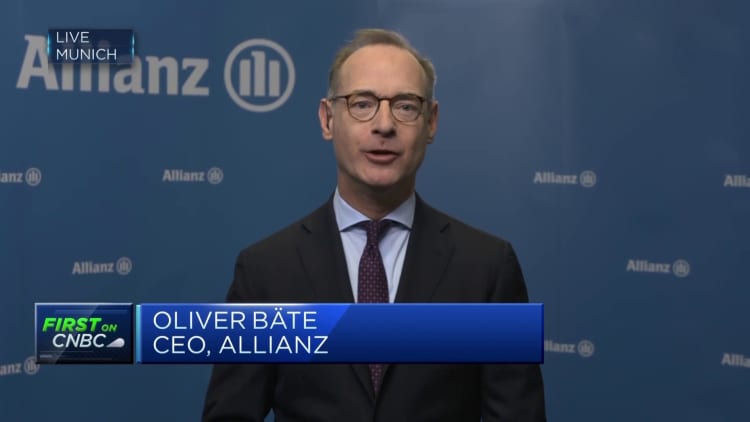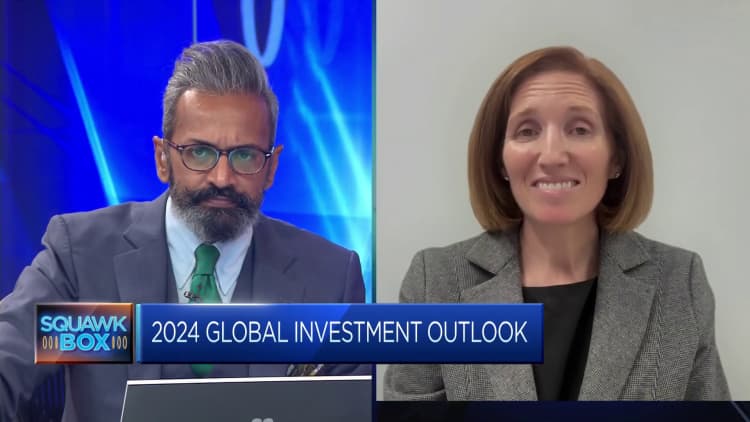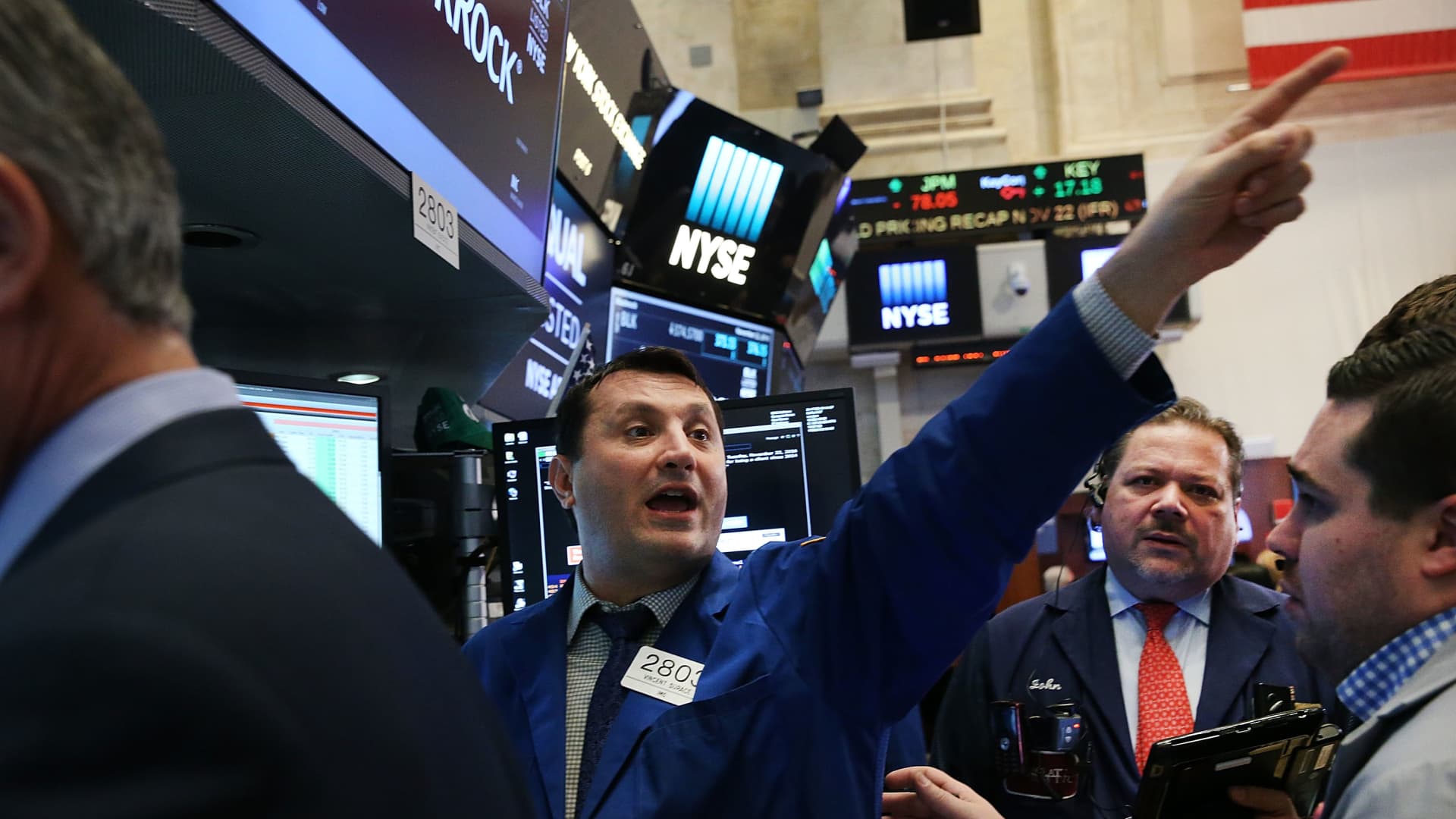A trader works during the closing bell at the New York Stock Exchange (NYSE) on March 17, 2020 at Wall Street in New York City.Â
Johannes Eisele | Afp | Getty Images
Global markets hit record highs this week as the frenzy around artificial intelligence boosted risk sentiment and hopes of a return to economic growth. But some investors have urged caution, suggesting that high tech valuations could put the rally at risk.
Oliver Bäte, CEO of wealth manager Allianz, which has around $1.85 trillion in assets under management, said it looks “very dangerous out there.”
“We are very cautious about some of the valuations in the tech sector,” he told CNBC’s “Squawk Box” Friday.
European markets extended gains Friday after the Stoxx 600 index closed at an all-time high in the previous session.
Fresh earnings out of Europe and spillover from Nvidia’s bumper revenue report in the U.S. helped push the pan-European benchmark to 495.1 Thursday â surpassing its previous record of 494.35 in Jan 2022, according to LSEG data. Germany’s DAX and the French CAC also hit record highs.
In Asia Pacific, Japan’s Nikkei 225 closed at a new all-time high of 39,098.68 on Thursday, surpassing the previous record of 38,915.87 set in 1989.
The gains have been mirrored stateside, with U.S. stock indices also scaling fresh all-time highs.
AI ‘reality check’?
It comes amid ever-growing hype around AI innovation and the anticipated boost it could bring to the sluggish global economy.
Shares of Nvidia closed up 16% Thursday after its full-year results showed revenues jumped 265% on the back of soaring demand for its AI chips. The surge boosted Nvidia’s market cap by $276 billion â the biggest one-day gain for any company on record.
Standard Chartered CEO Bill Winters told CNBC Friday that the recent rallies pointed to AI “innovation in action on every front,” and said his company had benefited “enormously” from the tech. The comments came shortly after the bank posted an 18% increase in pre-tax profits and announced a $1 billion share buyback program in its full-year earnings Friday.

However, Philippe Ferreira, deputy head of economics and cross-asset strategy at Kepler Cheuvreux, raised questions about how long the AI hype will continue to drive markets higher.
“Over the course of the year, it is likely that the overall AI theme will get a reality check at the companies’ level,” he said in notes to CNBC earlier this week. “The AI trade as we have seen it might have a little more to go, but it seems to be approaching important technical levels where some profit taking could occur.”
In the U.S. this week, investors piled into growth and technology stocks pushing the Dow Jones Industrial Average and the S&P 500 higher. The tech-heavy Nasdaq Composite also recorded its best session since February 2023, popping 2.96% to close at 16,041 on Thursday.
For Ferreira, “18,300 on NDX and early March could be key exit levels ahead of some material consolidation.”
“There is no shortage of fundamental catalysts and important reckonings could be up ahead,” he added.
For Allianz’ Bäte, there remain still-present pockets of risk in tech and beyond. “If I was individually investing [in tech], great idea. As an institutional investor, you need to be a bit careful,” he warned.
“There’s a lot of risk in investment markets, there’s a lot of questions about credit markets, there’s a lot of questions about real estate,” he continued. “It’s very dangerous out there.”
Japan rally ‘a little bit of a concern’

On Japan’s headline-making rally, Aoifinn Devitt, chief investment officer at investment advisory group Moneta, also expressed some concerns. She said the recent move higher appeared to have diverted attention away from market fundamentals.
“All of a sudden, it seems that shareholder value is returning to Japan, that the time has finally come,” Devitt told “Squawk Box Asia” Friday.
“It still is a little bit of a concern as to why Japan has risen by quite so much so quickly, when some of the fundamentals around the demographics, around the deflationary history, none of that has really changed.”

